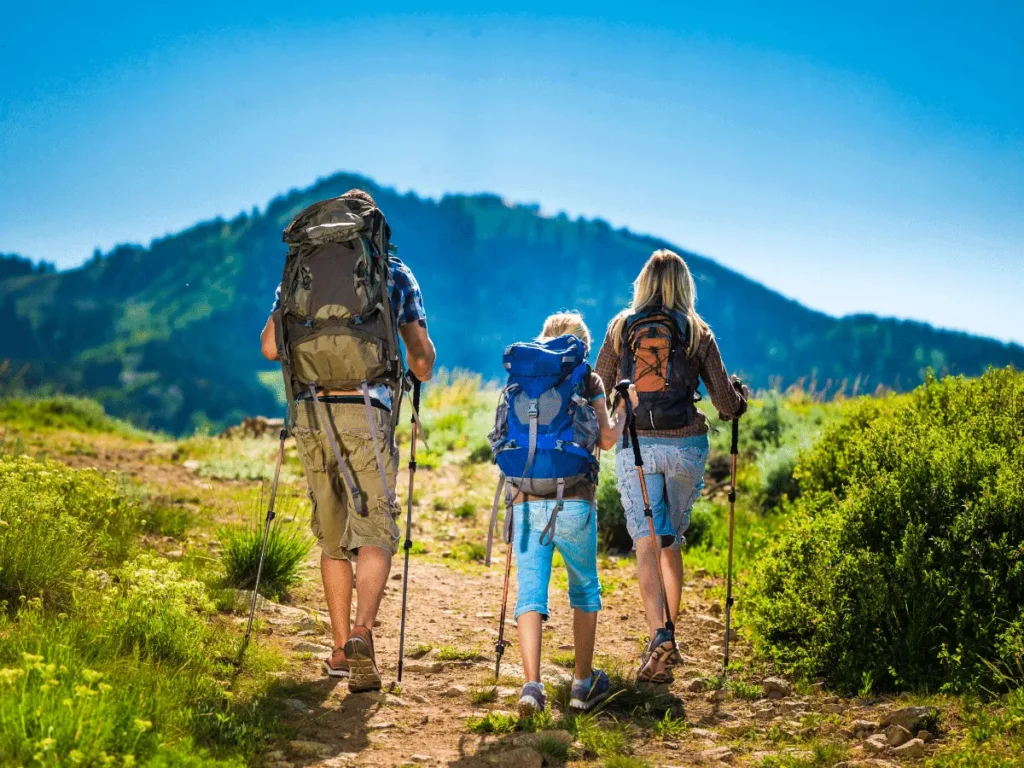Hiking and trekking are outdoor activities that offer a range of benefits for individuals of all ages and fitness levels. As the popularity of these activities continues to grow, more and more people are discovering the physical, mental, and emotional advantages they provide.
Physical Health Benefits
Hiking and trekking offer numerous physical health benefits that contribute to overall well-being and fitness.
- Improved cardiovascular fitness: Hiking and trekking involve continuous movement, which helps to strengthen the heart and improve overall cardiovascular fitness. The combination of uphill climbs and uneven terrain challenges the body, leading to increased endurance and stamina. This not only enhances cardiovascular health but also promotes a more efficient circulatory system.
- Strengthening of muscles and bones: Walking on varied terrains during hiking and trekking engages different muscle groups, including the legs, glutes, and core. This constant muscle engagement helps build strength and endurance, leading to improved muscle tone and overall fitness. Additionally, the weight-bearing nature of these activities helps to increase bone density, reducing the risk of osteoporosis and fractures.
- Weight loss and maintenance: Hiking and trekking are excellent forms of exercise for weight loss and weight maintenance. By burning calories and boosting metabolism, these activities contribute to a healthy body weight and promote overall well-being. The varied intensity levels and duration of hiking and trekking allow individuals to tailor their workouts to their fitness goals.
- Boosted immune system: Spending time outdoors exposes the body to fresh air and natural environments, which can strengthen the immune system. Regular hiking and trekking can help reduce the risk of illnesses by improving overall health and well-being. The combination of physical activity, fresh air, and exposure to nature’s elements helps support a healthy immune system.
Mental Health Benefits
In addition to physical health benefits, hiking and trekking also have significant positive impacts on mental well-being and cognitive function.
- Reduced stress and anxiety: Being surrounded by nature and engaging in physical activity has been shown to reduce stress levels and alleviate symptoms of anxiety. The tranquility and beauty of natural surroundings provide a peaceful escape from the demands of everyday life. The rhythmic movement and connection with nature help individuals relax, unwind, and find inner peace.
- Enhanced mood and happiness: Hiking and trekking release endorphins, also known as feel-good hormones, which can boost mood and increase happiness. The combination of physical exertion and natural scenery creates a positive and uplifting experience. The sense of accomplishment and awe-inspiring landscapes encountered during hikes and treks contribute to an overall sense of joy and well-being.
- Increased self-esteem and confidence: Accomplishing hiking and trekking goals, such as reaching a summit or completing a challenging trail, can significantly boost self-esteem and confidence. Overcoming obstacles and pushing personal boundaries instills a sense of achievement and empowerment. The mental and physical challenges faced during these activities provide individuals with a renewed sense of self-belief and accomplishment.
- Improved cognitive function and focus: Spending time in nature has been linked to enhanced cognitive function, including improved memory, attention span, and creativity. Hiking and trekking stimulate the mind and provide a refreshing break from daily routines. The peaceful and serene surroundings help individuals clear their minds, improve focus, and enhance mental clarity.
Stay tuned for the continuation of this blog article in the next response.
FAQ
- What physical health benefits can be gained from hiking and trekking?
- Hiking and trekking can improve cardiovascular fitness, strengthen muscles and bones, aid in weight loss and maintenance, and boost the immune system.
- How do hiking and trekking contribute to mental health?
- Hiking and trekking can reduce stress and anxiety, enhance mood and happiness, increase self-esteem and confidence, and improve cognitive function and focus.
- What muscle groups are engaged during hiking and trekking?
- Hiking and trekking engage various muscle groups, including the legs, glutes, and core.
- How can hiking and trekking benefit the immune system?
- Spending time outdoors during hiking and trekking exposes the body to fresh air and natural environments, which can strengthen the immune system and reduce the risk of illnesses.
